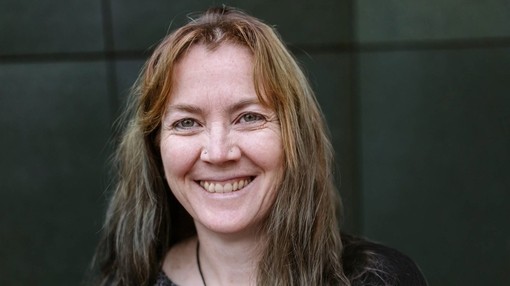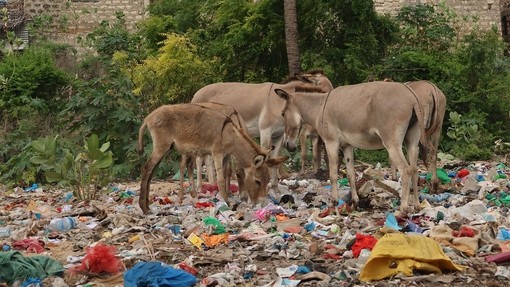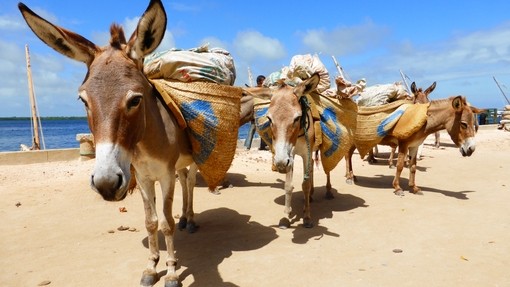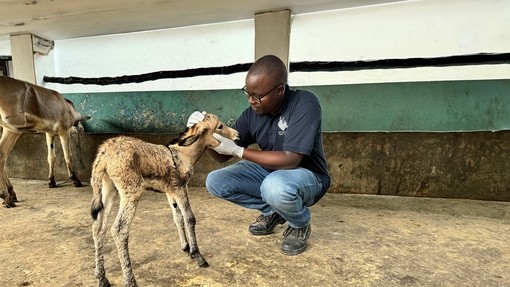
Dr Leanne Proops
Leanne Proops is an Associate Professor in Animal Behaviour and Welfare at the University of Portsmouth. Her work explores how donkeys, horses and mules think and understand the world around them. She also works to improve equine welfare.
Recently, Leanne has been working on a project exploring the impact of plastic pollution on working equids. We interviewed her to find out more…

What does being an Associate Professor involve?
It involves teaching and research at a university. My undergraduate degree was in psychology - some animal cognition, but plenty of human psychology as well. Then I went on to do a master’s in animal behaviour. I became really interested in animal cognition: trying to understand the minds of animals, what they know about the world and how they think.
Then in the last few years, I’ve been increasingly interested in working to improve animal welfare. Most of my research is with equids, so donkeys, horses and mules.
What is the most interesting thing about your job?
I find studying animal cognition really interesting - trying to understand animal minds, understand donkeys’ minds. It can also be challenging, since you can’t ask animals what they know. You have to devise experiments that will show the abilities that they have. You can do one particular experiment and it looks like they don’t understand, then you do a little tweak of the experiment and suddenly they’re showing what they can really do.
The most rewarding part of my research is the work to improve working equid welfare overseas and the lives of the people that own those donkeys.

How did you get into this research in the first place?
My connection to The Donkey Sanctuary goes back a long way - to 2006 when I was studying for my Animal Behaviour Masters Degree in Exeter. I completed my summer research project at The Donkey Sanctuary, and compared the cognition of horses, donkeys and mules. People tend to assume that all domestic equids are essentially the same, but they’re different species; they’ve different evolutionary backgrounds. There’s a lot more known about horses than donkeys though.
We’ve done a few studies that show that mules often outperform donkeys and horses in various different cognitive tasks, like identifying a sign for food and working out how to get around barriers. I also looked at their social behaviours in the field and their friendships. Donkeys prefer to spend time with donkeys and horses with other horses, and there are subtle differences in their hierarchies and the way they interact with each other.
I’ve been working with The Donkey Sanctuary on and off ever since. In the last 8 years, I’ve been increasingly working with their overseas team and to improve working donkey welfare.
One of your current projects with The Donkey Sanctuary is focused on plastic pollution. Can you tell us more about it?
We have been working on a project with The Donkey Sanctuary on Lamu Island, Kenya, looking at the effects of plastic pollution. Most people, when they think about plastic pollution, think of the ocean - they think about marine animals and how it affects them. People think much less about how it affects terrestrial animals and, in particular, domestic animals. There are so many countries where there isn’t good waste management and there are large open dump sites. Animals come to those dump sites and end up eating lots of plastic. That’s true in Lamu, as it is in many places.
We’ve been trying to understand the effects of plastic pollution from a range of different perspectives. We’ve completed a small pilot project looking at the levels of microplastics in donkey and cattle faeces. We’ve taken samples when they’re eating at the dump site, in the middle of the town, and in the countryside to see if there are higher levels of microplastics in the animals that are eating at the dump sites.
We’ve also looked at behaviour. Animals in the countryside seem to spend more time resting and when they’re at the dump sites, they’re eating. So it seems like they’re deliberately going to the dump sites for their food, then heading off somewhere else to rest, relax and do other things.
We also conducted a survey of the local people, asking them whether they think plastic pollution is a problem which, yes, the majority of people do. We also asked if the plastic pollution is affecting their donkeys and livestock and many people have experienced health problems in animals as a result of the ingestion of plastic.
The solution is complex. The ideal solution wouldn’t be to confine the animals all the time. The good thing about roaming is that the donkeys get to be free, interact with other donkeys, and be a donkey when they’re not working. I think the only solution is to work with the local community to reduce the plastic pollution.
There’s a permanent Donkey Sanctuary clinic on Lamu and the head vet there, Dr Obadiah Sing’Oei, is doing just that. There’s an existing local project called The FlipFlopi Project that encourages plastic recycling - they have created a boat out of recycled plastic! Boating is a huge part of Lamu culture, as are the donkeys. The Donkey Sanctuary Kenya is building links with community groups such as these to try to improve the situation for the many working donkeys that live on the island.

And what are the other projects you are currently working on?
In Lamu, we have also been working with Lamu Arts and Theatre Alliance (LATA) on a community theatre project aimed at disseminating donkey welfare information.
We also have a new project funded by the British Academy that looks at the role of donkeys in helping with drought resilience in Kenya and Ethiopia. We will be working with The Donkey Sanctuary and other partners, including working equid charity Brooke, the International Livestock Research Institute, UCL and Edinburgh University.
Donkeys play a really huge role in helping during drought. In Kenya, there is a saying that when the donkeys start dying, the humans are next. They’re so hardy that they’re often the last animals left standing in really serious conditions. They are often the ones that collect water. If you don’t have a donkey, it’s the women and the kids that are carrying large, heavy water butts. And, of course, when drought happens, you have to go further to the nearest water source. These donkeys are making long journeys every day and they’re helping to support the cattle and other animals with water, as well as the family.
Being drought resilient is a benefit to donkeys but also a problem for them. They’re often overlooked in government policy and disaster provision. For example, in Kenya, in bad drought some people were getting aid for their cattle, but their donkeys were getting nothing. As well as working with local communities, part of the project is to do a policy analysis, looking at global policies on drought resilience and livestock, and the extent to which working equids are included. The Donkey Sanctuary and Brooke have been working really hard on this issue and have had some successes in trying to get donkeys included in livestock policy.
What’s the most surprising thing that you’ve discovered in your research so far?
We looked at whether horses can read the facial expressions of humans. We showed horses a photograph of someone looking happy or angry in the morning. Then the person came into the stables about four or five hours later, sat down in the stable with a neutral expression and we looked at how the horses responded. We found that if they’d seen that person looking happy earlier on in the day, they showed more positive behaviours towards them. If they’d looked angry in the morning, they showed more negative behaviours.
We thought that maybe they had just got in a bad mood because they saw an angry face in the morning, but when we presented them with an unrelated person we didn’t see avoidance or negative behaviours. This shows that they were only reacting to the specific person they had seen in the photograph in the morning.
If you had the freedom to research anything, what would it be?
One area I’ve been interested in exploring for a long time is donkey and horse responses to loss and grief. It is quite a sensitive topic but there are lots of reports of strong reactions to the loss of a social partner. Showing the importance of emotional bonds to equids it is one area that I think could do a lot of good when trying to improve their welfare. And I don’t just mean the death of social partners. In the wild, equids can form bonds that last a lifetime. When they are in captivity horses and donkeys are often sold and moved around a lot, they are taken away from their friends and never see them again. Their emotional lives and their mental lives, I think that’s something that we don’t really pay enough attention to.
Find out more about plastic pollution in Lamu and our work with the University of Portsmouth
Read moreShare this page
Tags
- Blog



